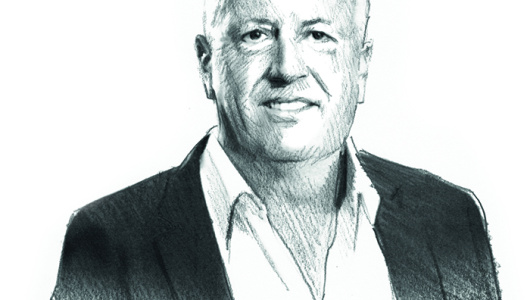
When lots of people tell you philanthropy is now an integral part of financial planning, can they all be wrong?
As we start the new year with hopes for a better economic climate than in 2022, charitable giving is certainly topical. In fact, charity Pro Bono Economics has called on the Financial Conduct Authority to make philanthropy training mandatory for advisers and to introduce regulation to ensure philanthropy is discussed with clients.
Given the tax benefits, philanthropy is often a key element of an estate planning strategy
Although philanthropy is distinct from environmental, social and governance investing, there is clearly common ground from a financial planning perspective because it involves using money to do good.
Pro Bono Economics says philanthropic capital comprises a third of the charity sector’s income each year — around £20bn. This could be much higher if more advisers discussed philanthropy with clients who had the capacity to give, as advisers do in the US.
Are UK clients interested, and how can advisers get the ball rolling?
Tax efficiency
The main purpose of philanthropy is to make a positive impact on society, but there is no denying the associated tax incentives can provide practical financial planning solutions for clients.
We work with younger people who are going to become beneficiaries and clients
Clients can reduce income tax, capital gains tax (CGT) and inheritance tax (IHT) by giving away money, or assets such as property or shares, to charity.
Advisers can use this as a way in by asking clients if they are interested in charitable giving, or in maximising the tax efficiency around their existing arrangements for supporting good causes. Given the choice, most people would prefer to give money to a cause that meant something to them rather than watch it disappear into the ether through the tax system.
“It’s for us to say to clients, ‘I can see you’re regularly giving to charity. The benefits of tax mitigation are important,’” says St James’s Place director for partner engagement and consultancy Alex Loydon.
I’m going to advise a couple, who received an unexpected legacy, on how to invest the money and whether they want to annuitise it
She says people often forget to include charitable giving in their tax return, so they do not obtain full relief. They also tend to think only in terms of income tax relief and overlook the fact they can get CGT relief if they give assets such as shares to a charity.
“Very often, lots of clients who are high-earning professionals give to charity out of their surplus income, but they could use a portfolio that is pregnant in gains rather than that,” says Loydon.
JMW Solicitors head of wills, trust and estate planning Joe Cobb says charitable giving is most common among clients with assets of more than £50m.
“Philanthropy is often a key element of an estate planning strategy, given the favourable tax benefits,” he says. “Assets left to charity in a will are not subject to IHT and, when more than 10% of an estate is bequeathed to charity, the IHT on the remaining assets will be reduced by 4% to 36%.”
Leaving a legacy
Advisers with a lifestyle planning approach have a different starting point, perhaps — one that is based on the idea of leaving a legacy.
“As part of our financial planning process, once a client has confidence they can live the life they want and look after those they love, we want to advise them on the best ways to leave a powerful legacy,” says Equilibrium Financial Planning chartered financial planner Ben Rogers.
“This often includes discussing philanthropy.
A donor advised fund allows families to create their own earmarked pot within the structure
“Unlike charity, philanthropy is, by its nature, a long-term, strategic approach aimed at addressing the underlying causes of problems facing our communities and wider society.”
At this point, advisers can help clients work out exactly what they want to do with their money, and things start to get interesting.
Decision making
There are decisions to make about who to help and when to help.
Once a client has confidence they can live the life they want and look after those they love, we want to advise them on the best ways to leave a powerful legacy
Does the client want to create a living legacy so they can see the impact they are making, or are they happier leaving assets to charities in their will?
Will they provide a chosen charity with a regular income or a lump sum? Is that to be provided from surplus income or other assets? Should they set up their own charitable trust?
“Many individuals with philanthropic goals explore setting up their own charitable foundation. However, the process is often wrought with pitfalls and costs that act as a significant barrier,” says Rogers.
As an alternative, Equilibrium offers access to a different structure: a donor advised fund.
The client comes away saying, ‘I’ve learnt something about my children’
“This allows families to create their own earmarked pot within the structure, during lifetime or on death, which can be distributed over the long term to charitable causes close to their hearts,” says Rogers.
“It removes the barriers to philanthropy by simplifying the process.”
The donor advised fund handles all the administration, providing clients with tax and estate planning benefits without the high legal fees associated with creating one’s own foundation.
Unexpected bequests
Philanthropy is associated with wealthy people but advisers say it is for everyone. Succession Wealth certified wealth planner Mark Rogers says clients who are religious but not massively wealthy often want their money to help good causes.
He has an anecdote about his clients; a couple who ran a successful gym. They were concerned about the wellbeing of their own clients, so they ran a café that served healthy food.
“One guy came in who was doing well but then he didn’t come in for a while and it turned out he had a terminal illness,” says Rogers.
It’s for us to say to clients, ‘I can see you’re regularly giving to charity. The benefits of tax mitigation are important’
“The couple helped him and brought him into the community — he didn’t have a family.”
When the man died, he left the couple £500,000 in his will. Feeling stunned, honoured and guilty all at once, the couple decided to use the money for a charitable foundation to help disadvantaged children.
“The board of trustees includes accountants and solicitors,” says Rogers.
“I’m going to give the couple advice on how to invest the money and whether they want to annuitise it.”
Education tool
Philanthropy is also a financial education tool for younger generations.
Charities Aid Foundation head of private clients Ed Garrett says clients increasingly want their children involved in their arrangements for charitable giving. It is a safe place to learn how to manage wealth before they inherit from their parents.
Assets left to charity in a will are not subject to IHT
“We work with younger people who are going to become beneficiaries and clients,” he says.
“And the client comes away saying, ‘I’ve learnt something about my children.’”
Intergenerational wealth transfer
Intergenerational wealth transfer is the big theme some commentators see as behind the recent interest in philanthropy.
Different generations can come together through their involvement in charity and their help can go beyond the financial.
Rogers at Succession mentions clients who set up charitable funds and then gave their time to help out the recipients of the financial awards they had made, in places such as hospitals and food banks.
Ultimately, philanthropy can be whatever the client wants it to be.
A donor advised fund removes the barriers to philanthropy by simplifying the process
Kingswood wealth planner Alex Holloran says it is not always about gifting money in the conventional sense.
“We previously worked with a client who wanted to retire earlier than she had planned so she could care for her mum, who had been diagnosed with dementia,” he says.
“Rather than use her wealth to pay for a nursing home or live-in nurse, she chose to stop working, use her savings to replace her income and do the daily care herself.”
This article featured in the January 2023 edition of MM. If you would like to subscribe to the monthly magazine, please click here.










Is this really a job for advisers? I have always thought that an adviser’s role was to look after and if possible, enhance the income or assets of their clients. Sure, the very rich might want to donate, but please don’t compare them with the USA. The tax burden on the very rich there is a tiny proportion of what their counterparts pay in the UK. Legacies in wills is fine, provided they are happy reducing what the next generation receive.
I’m sure that those who do wish to give don’t need prompting by their adviser. And if they are well off, they no doubt have an accountant that can remind them of including donations on their tax return. And don’t forget the enhancement of Gift Aid.